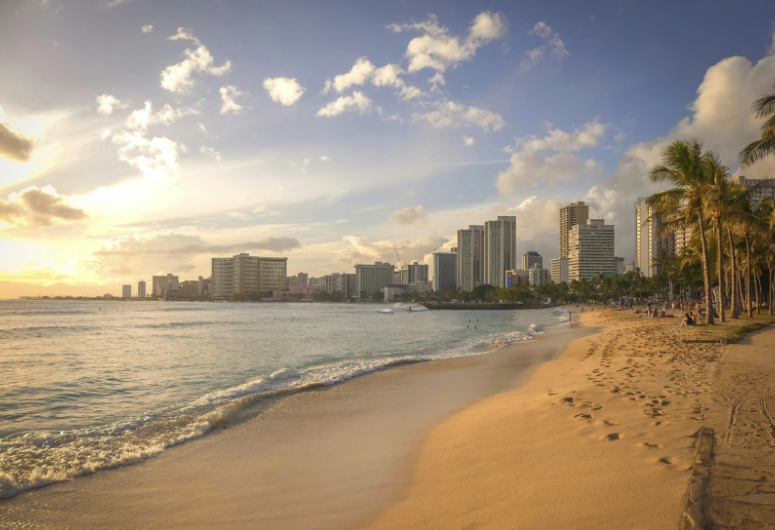New Zero-Emission Buses Arriving in Maui Under Statewide Transit Upgrade

Maui County is taking a visible step toward cleaner transportation as new battery-electric buses begin to arrive under a statewide program to modernize public transit. The first shipment has already reached Kahului Harbor, with additional units scheduled to roll into service later this year.
The rollout of electric buses highlights how new infrastructure and innovation are reshaping Maui’s recovery and growth. Similar patterns of investment point to wider changes in how communities connect with technology, entertainment and emerging digital opportunities. Local start-ups are testing virtual reality tours and online music festivals to reach wider audiences. The scene is expanding further with e-sports competitions, live-streaming platforms and other interactive experiences gaining ground.
Within that wider shift, sweepstakes casinos have also entered the picture. As part of the online entertainment industry, new sweepstakes casinos have emerged with formats that use virtual credits instead of direct wagering. They are noted for offering introductory bonuses and promotional rewards that extend playtime while showcasing different types of games. Analysts also point to unique features, such as alternative entry methods and varied prize systems, that set them apart from more traditional digital platforms.
Innovation in both infrastructure and digital spaces reflects a broader pattern of transformation shaping the islands. Local and global initiatives alike are drawing on new funding sources and creative models to support change. That same momentum is visible in government-backed projects, where major investments are now being directed toward transportation upgrades across Maui and neighboring counties.
The initiative is led by the Hawai’i Department of Transportation and supported by a $16.6 million funding package. Federal Transit Administration grants cover $11.2 million, while the balance comes from the Hawai’i State Energy Office through Volkswagen Settlement funds and contributions from counties. Officials say the investment will allow the replacement of twelve diesel buses across Maui, Kauaʻi and Hawai’i Island.
For Maui, the upgrade promises tangible benefits. Electric buses operate with less noise, lower maintenance costs and reduced fuel expenses. Transit staff estimate that each vehicle will cut nitrogen-oxide emissions by 1.445 tons over its lifespan, adding up to more than 17 tons in greenhouse gas reductions across the participating islands. The savings are significant for a county still working to meet ambitious climate goals.
Transit administrators emphasize that the program is not simply about replacing vehicles. It also requires the construction of charging facilities, specialized training for drivers and maintenance crews, and long-term planning to ensure reliable service. Work has already started on charging stations at county depots to accommodate the first buses entering rotation.
Maui County Mayor Richard Bissen said the arrival of electric buses marks steady progress toward sustainability commitments made in recent years. He pointed to the link between cleaner transit, better air quality and the island’s responsibility to reduce dependence on imported fuel. Leaders hope that visible changes on local streets will reinforce the message that Maui is moving toward renewable solutions.
Hawai’i has set a 2035 deadline for all four counties to operate fleets powered entirely by renewable fuels or zero-emission technology. Honolulu already runs more than a dozen electric buses and is preparing to add dozens more, backed by new charging hubs at transit centers. Maui’s rollout is smaller in scale but equally significant, reflecting the importance of modern transit for communities outside the state’s largest urban core.
Environmental organizations welcomed the announcement, describing it as a practical measure in the fight against climate change. Advocates highlighted the potential for reduced pollutants in busy corridors, where exhaust has long been a concern for residents. They also noted that electric buses can serve as a model for broader adoption of clean energy vehicles throughout Hawai’i.
The program carries economic implications as well. Contractors are engaged in building infrastructure, while county employees are training in high-voltage maintenance and diagnostic systems. Officials expect the technology to create new skill requirements and opportunities within the local workforce. Reliable infrastructure is viewed as critical, with emphasis placed on grid resilience and strategic placement of charging equipment.
The shift to electric comes during a period of recovery and adjustment for Maui. Communities continue to face challenges linked to wildfire recovery and prolonged drought. County officials say investments in sustainable infrastructure provide a foundation for resilience, offering both immediate improvements and long-term benefits. The new buses are seen as part of that process, underscoring the importance of reliable and sustainable public services.
Riders will notice gradual changes as buses are phased in. Routes with heavy passenger loads and congested roads are expected to see the first electric units, giving residents and visitors an early glimpse of the difference. County transportation staff describe the buses as smoother to ride, quieter inside and outside, and capable of handling daily service demands.
The push to modernize follows years of debate over how to strengthen Maui Bus. Riders asked for service that is more reliable, comfortable and environmentally sound. Officials say the new electric fleet delivers on those demands, even as the system still faces challenges with routes and capacity.
State leaders point to the program as proof that federal, state and county agencies can work together to move projects forward. Joint funding and shared priorities made it possible to bring new vehicles into service in a short time, a model now cited for future clean energy efforts.
The buses represent a major change in Maui’s transit system. They mark Maui’s effort to rebuild its transit fleet with sustainability as a priority. As deliveries continue, officials expect residents to notice the change quickly–from quieter streets to lower emissions. Each trip moves the island closer to its goal of a resilient, cleaner transit network.
